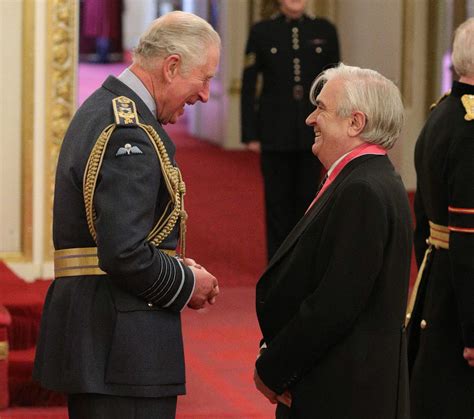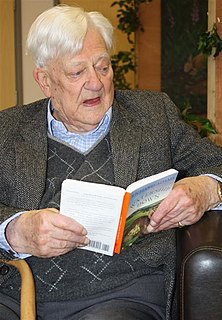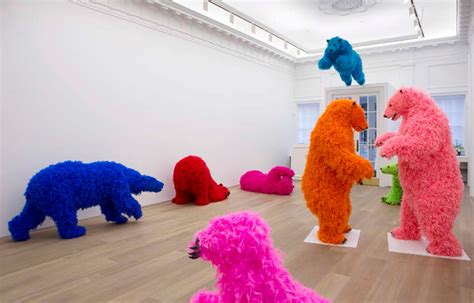A Quote by Damien Hirst
I like the confusion you get between science and religion … that’s where belief lies and art as well.
Related Quotes
This much I can say with definiteness - namely, that there is no scientific basis for the denial of religion - nor is there in my judgment any excuse for a conflict between science and religion, for their fields are entirely different. Men who know very little of science and men who know very little of religion do indeed get to quarreling, and the onlookers imagine that there is a conflict between science and religion, whereas the conflict is only between two different species of ignorance.
Science has only two things to contribute to religion: an analysis of the evolutionary, cultural, and psychological basis for believing things that aren't true, and a scientific disproof of some of faith's claims (e.g., Adam and Eve, the Great Flood). Religion has nothing to contribute to science, and science is best off staying as far away from faith as possible. The "constructive dialogue" between science and faith is, in reality, a destructive monologue, with science making all the good points, tearing down religion in the process.
The most interesting character to me is someone who is stuck in the no man's land between Belief and Unbelief, Faith and Faithlessness. I'm capitalizing like a German, but it doesn't matter whether it's faith in a person or in God, or belief in science or whatever, it's the desperate in-between state that makes for interesting dramatic tension.
This [the opening of the Vatican City radio station built by Marconi earlier in 1931] was a new demonstration of the harmony between science and religion that each fresh conquest of science ever more luminously confirms, so that one may say that those who speak of the incompatibility of science and religion either make science say that which it never said or make religion say that which it never taught.
However the great successes of science - Galileo's telescopic observations, Newton's law of gravity, etc - all of this great success caused people to sort of say, what if we could establish religion on that same successful basis? What if we could have a good rational foundation for religious belief. What if religion could be sort of like science. Of course, that can't be.
I see lies everywhere - switch on the television, it's lies. Everything is lies. In the art world or science community, we are intellectuals, people who research, who are interested in learning and thinking. I think the level of lies is way lower than when you step into what I call "the outside world".
I think religion and science operate in different regimes. Religion is a belief system that tries to give meaning and comprehension to peoples' lives. Science is more about the mechanics of the universe around us and the way in which it works. And I don't think those things have to be mutually exclusive.








































